The United Nations in Syria, Ivory towers no longer conceal their people in the age of open media
By Mansour Omari
Translated from Arabic by Enab Baladi
The United Nations, with its different agencies and offices operating in Syria, provide great humanitarian work to millions of civilians and plays an important role in supporting the victims of the war in Syria, especially those most affected and vulnerable. Guided by the purposes and principles contained in its founding Charter, the UN work in Syria to maintain international peace and security, protect human rights, deliver humanitarian aid, promote sustainable development, and uphold international law. What we see in Syria that none of those purposes have been achieved, and on the contrary the situation is getting even worse.
Several issues taint the work of the United Nations as a whole in Syria, to the extent that it is accused of complicity in war crimes and support of one of the parties to the war, based on documents and testimonies of credible persons. This contradiction involves several risks, including the loss of confidence in this international institution. The United Nations may respond to these accusations from time to time, but have it taken any real steps to find out the causes of these problems and accusations, and try to improve its performance, which may sometimes contradict the essence of its existence?
Two years ago, I wrote an article in which I described the necessity of media coverage of the UN’s work in Syria, with its occasional blunders and scandals: “The United Nations is Cleaning Assad’s Trash While Ignoring the Needs of His Victims.”
The reactions of most Syrian media to my call was that they were not covering the UN’s work in Syria, because they are not allowed to do media work in the UN’s work areas. The reason is that journalists fear Assad regime, so they can not cover the UN work, as the UN only operate in Assad’s control areas, or that UN agencies do not respond to questions.
The accusations to the UN ranges from funding businessmen supporting the Syrian regime and are sanctioned by the US and EU. The Syrian government and military institutions benefiting from UN agencies, as well as “charitable” organizations belonging to Assad’s wife Bashar al-Assad and his cousin Rami Makhlouf. Former UN staff Anne Sparrow accused the World Health Organization (WHO) and other international agencies of helping Assad in his war against Syrian civilians.
The international Syria campaign together with 66 Syrian organizations launched a report and a call to the United Nations to stop supporting one party at the expense of another, accusing it of losing integrity, independence and neutrality in Syria.
Today, another scandal of the work of the United Nations in Syria appeared. A few days ago, an investigation published by Daraj media: “Loans in Syria in the Service of the Militants of the Regime“, about the involvement of UNRWA in funding people and parties of the war in Syria for Bashar al-Assad, in addition to Syrian institutions that committed war crimes and crimes against humanity like the Political Security and the General Intelligence.
A few days ago, I emailed the agency, that is tasked with supporting Palestinians, asking it about its efforts in two specific camps for displaced Palestinians in northern Syria, Deir Balut and Muhammadiyah camps:
Has the UNRWA provided any assistance to those in the camps of Deir Balut and Muhammadiyah? If not, why?
Does the UNRWA have plans to provide assistance in the near future, with winter already in place, and needs of heating arises, while the rain is turning the camps into mud pools?
Mr. Sami Masha’a, UNRWA spokesman, answered:
“The United Nations teams, based in Syria, including UNRWA, do not currently have access to Idlib and the surrounding areas. The UNRWA Presidency in Amman is in contact with partners who have access to monitoring the situation of Palestinian refugees in the region to ensure that Palestinian refugees are included in the current programs and are being assisted as part of the cross-border assistance process from Turkey”.
In other words, UNRWA did not provide any assistance, but is making efforts to reach them. The answer seemed too general.
The United Nations, with its various offices, appears to be revolving in the orbit of a historic statement by one of its senior officials.
“We can not help the people in the liberated areas because our cadres are in Damascus,” British journalist Peter Gill said in his book, “Today we drop bombs and tomorrow we build bridges.” People in those areas, our cadres will face real difficulties, “explaining why the United Nations did not help those who suffer, for fear of its employees to be retaliated against by Assad’s” legitimate government”.
This statement contrasts sharply with the recommendations of the United Nations in its last report on Syria on 18 November 2018, under the name of: Death notices in the Syrian Arab Republic”, which spoke of the need to explain the fate of detainees and missing persons.
The paradox is that the United Nations is fully aware of threat of the Syrian regime, and even to its cadres, if provided any humanitarian action without the regime consent and interference, according to one of its officials, while demanding that it “provides legal justification” for the continued detention of detainees. Assad regime is already issuing death certificates of detainees under torture, saying they died of natural reason, in medical reports issued by the Doctors Union and official hospitals. What is the United Nations really asking? Or are these recommendations “Cliché” used by the United Nations at the end of their reports, or are their sources Syria not sending them detailed reports on the situation in Syria?
There are several possible reasons for this irrational contradiction, the most serious of which may be explicit collusion with the Syrian regime, and the simplest would be its bureaucracy that amounts to distorting the facts in isolation from reality, supporting the loss of victims’ rights and guides outdated claims.
In the same report the United Nations asked to refer Syria to the ICC: “If Syrian states are not prepared to hold perpetrators accountable or unable to do so, the UN Security Council should refer the matter to the ICC.” As if the writer of the recommendations is a new UN official and had no knowledge of the failure of all attempts to refer the file, due to the Russian and Chinese veto for many times, especially with no signs of Russia’s retreat from the use of the veto to protect Assad. On the contrary, the practices show growing and close support by Putin.
Another recommendation in the report calls for the funding of bodies in Syria that it know Assad regime will only accept it if supervised and controlled by his security branches, according to its experience in Syria. “A national compensation mechanism should be established in the Syrian Arab Republic to assess the actual damage, receive complaints, This is an appropriate remedy, whether financial or in any other form. ”
This mechanism could be a governmental institution that is controlled by the Assad regime, adding to the future deviations of the United Nations. The United Nations must make greater efforts to clarify its potential and the obstacles that stand in its way and try to reform it. Ivory towers no longer conceal their people in the age of open media.
if you think the article contain wrong information or you have additional details Send Correction
النسخة العربية من المقال
-
Follow us :

















 A
A
A
A
A
A
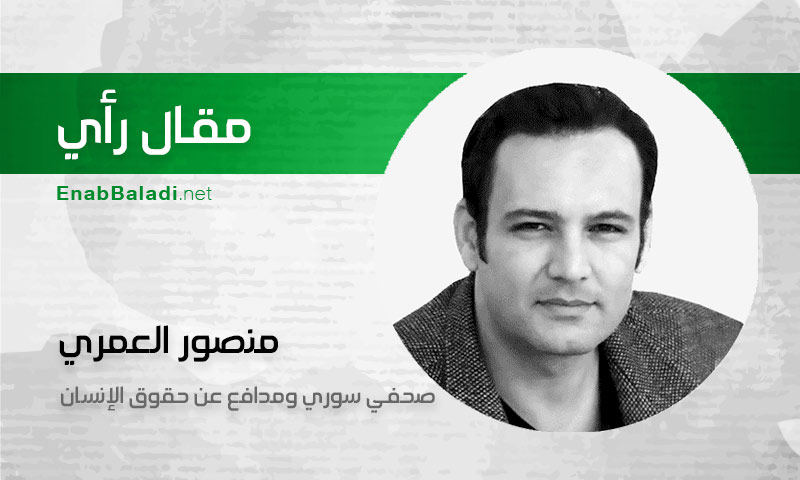



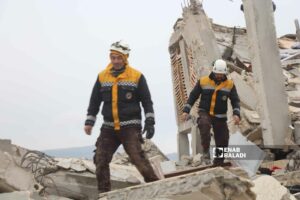
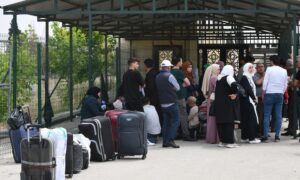
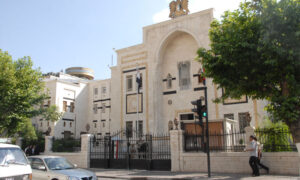
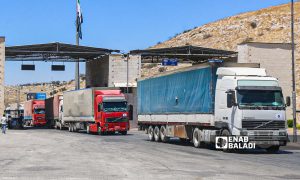
 More Opinion
More Opinion